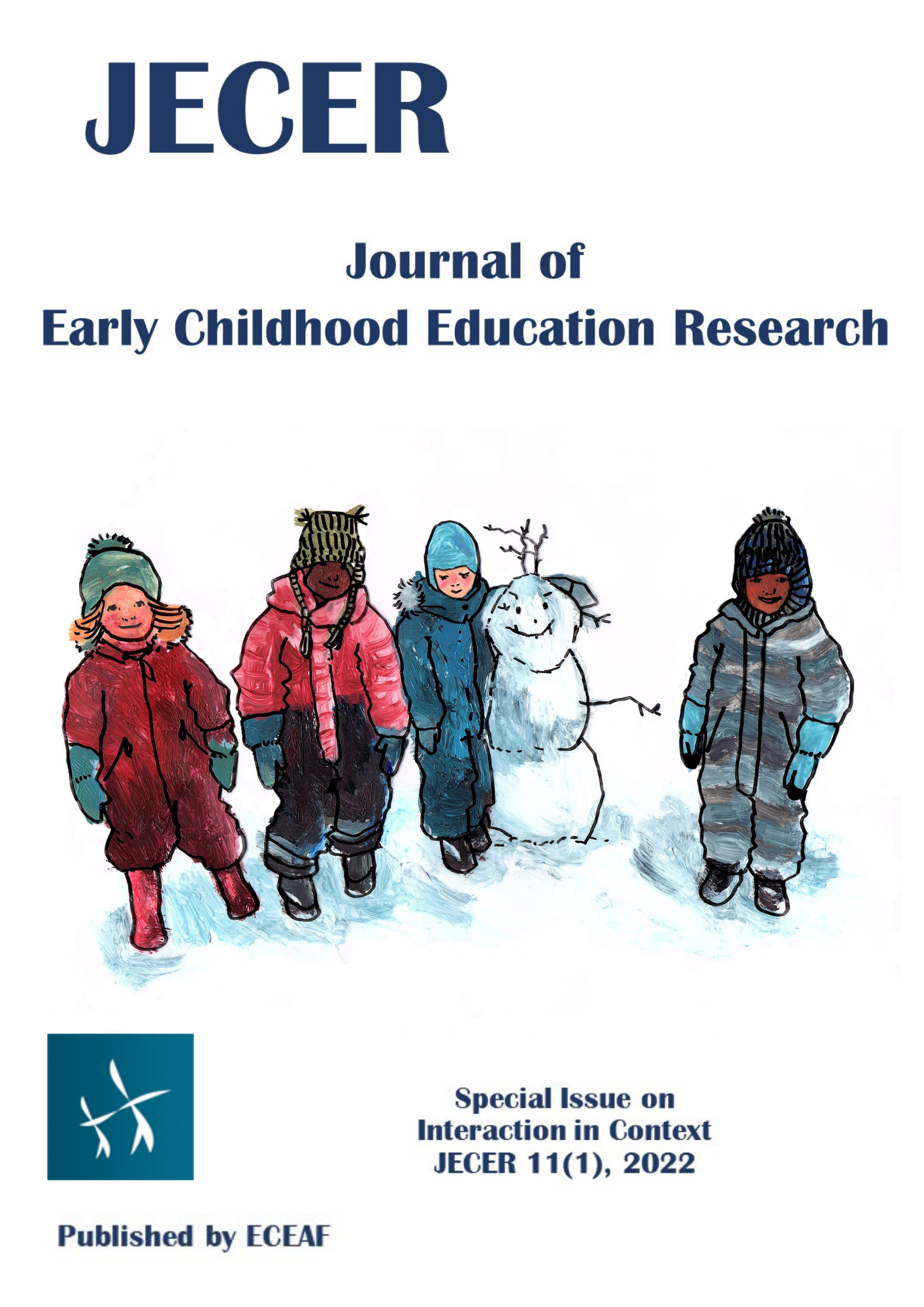Teacher–child interactions as a context for developing social competence in toddler classrooms
Avainsanat:
teacher–child interaction, variability in teacher–child interaction, social competence, empathy, toddlersAbstrakti
The present study investigates the quality and variability of teacher–child interactions in relation to children’s social competence in Finnish toddler classrooms. The participants included 242 toddlers (114 girls, 128 boys) and their teachers (N = 42). The quality of teacher–child interactions (i.e., emotional and behavioral support; engaged support for learning) was observed using the CLASS-Toddler observation instrument (La Paro et al., 2012), and the average amount of within-day variability was calculated from the observed cycles. Teachers rated toddler’s social competence with the Multisource Assessment of Social Competence Scale (MASCS; Junttila et al., 2006) in relation to the toddlers’ cooperation, empathy, impulsivity, and disruptiveness. The results revealed that observed engaged support for learning was positively associated with the classroom average level of empathy in the spring when accounting for previous levels of empathy in the fall. In addition, a higher variability in engaged support for learning was negatively related to the empathy. The results emphasize the importance of active facilitation, well-timed feedback, and verbally rich support by teachers in promoting toddlers’ empathy throughout one’s daily activities, hence attesting to both the quality and consistency of such practices. The results are particularly useful for initial teacher training and in-service training.

